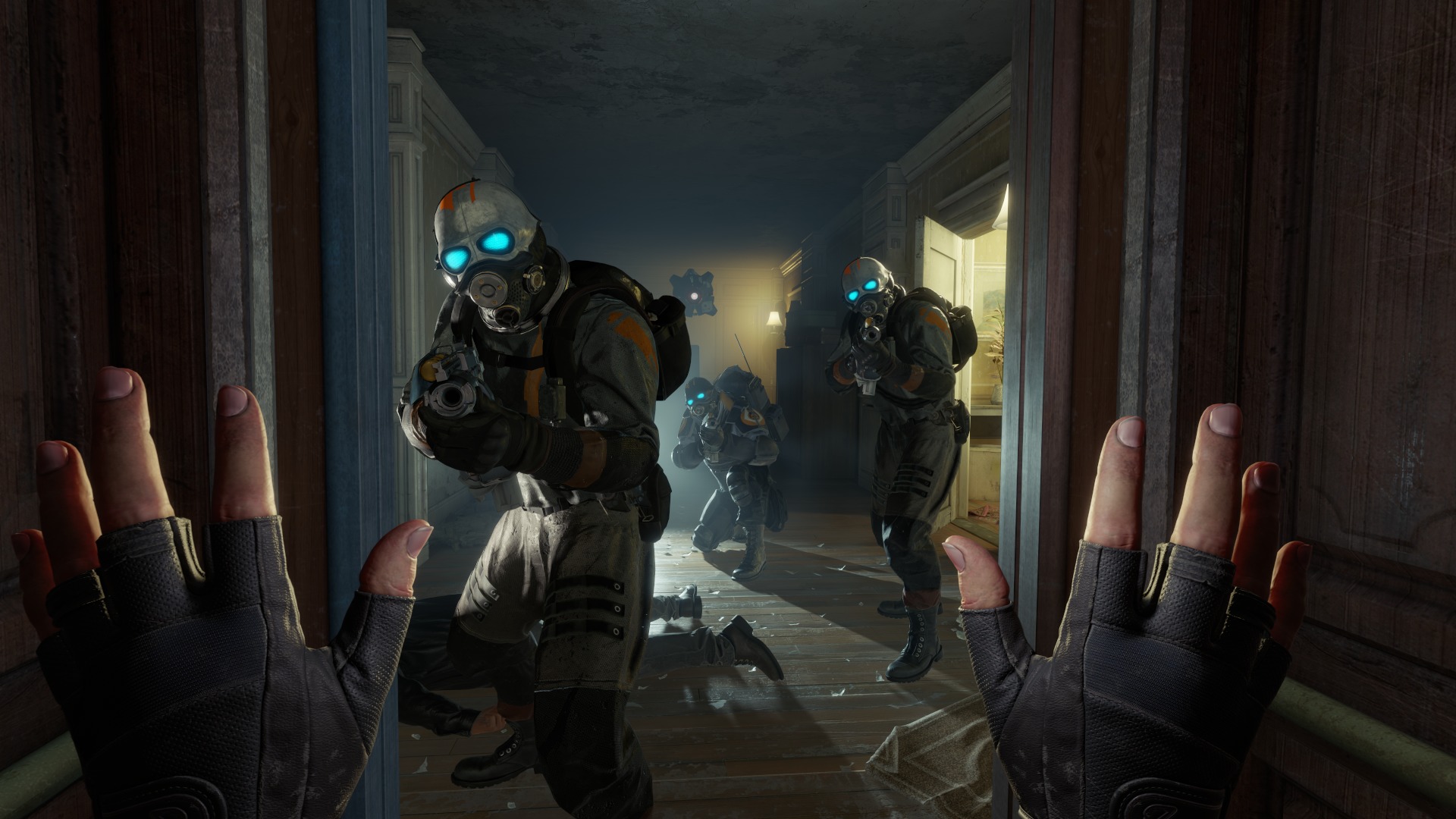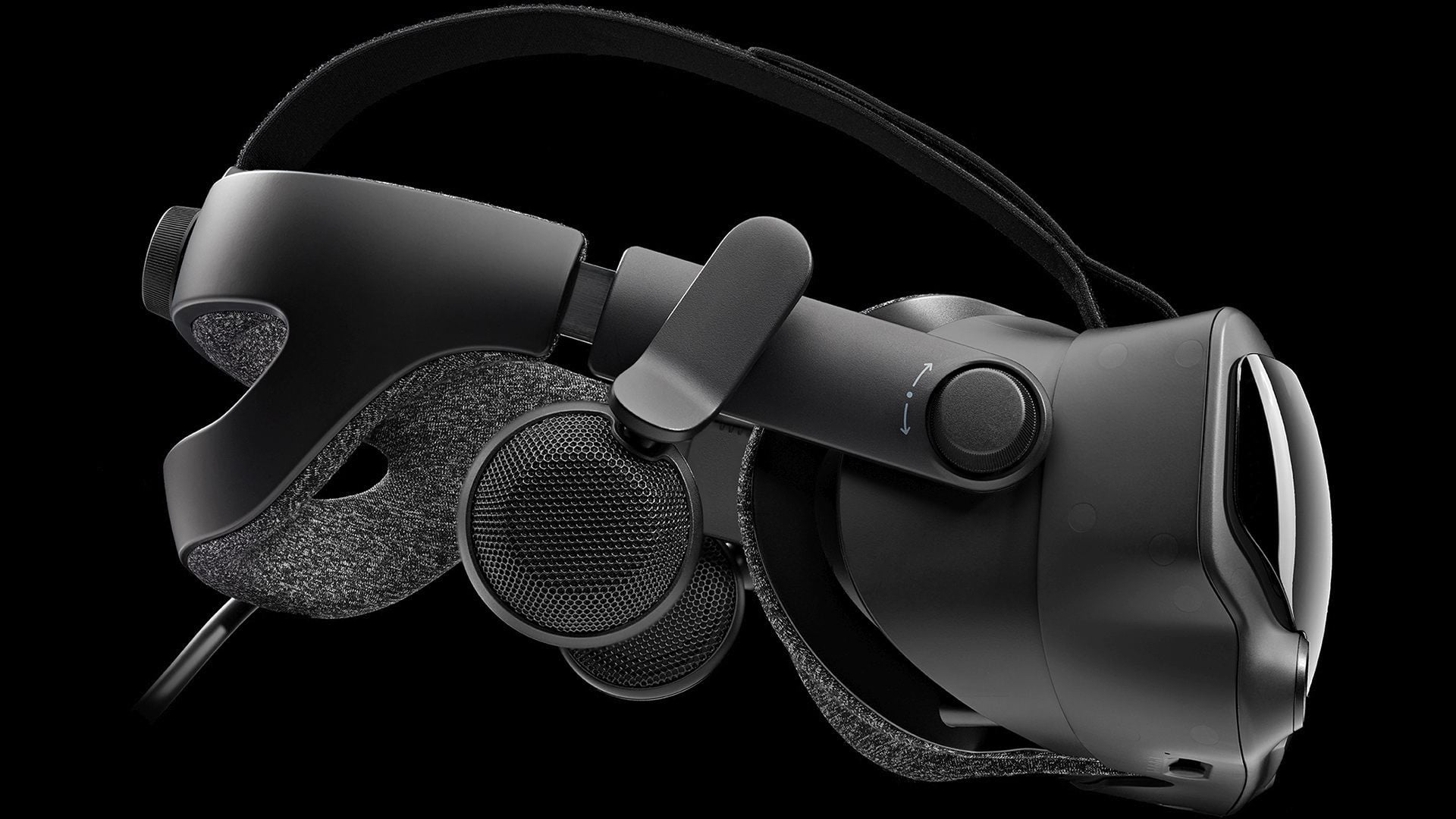I’m a huge fan of VR. Don’t get me wrong, I’ve been on the skeptic train for VR before, but once you actually go hands on with a well designed VR game, you understand the true potential the format could have for the future of gaming. It’s immersion and entertainment on a level that’s otherwise unmatched by anything else. It’s basically the best thing we can hope for short of actually populating these wondrous worlds that video game creators craft for us.
But, and here’s the rub—VR hasn’t actually taken off yet. There’s a whole slew of reasons it hasn’t, but the most obvious one is that there hasn’t been any reason for people to spend money on a VR set. These things cost hundreds of dollars, on top of an expensive console, PC, or phone you already need to run them—so you better have a good reason to spend money on them.
So far, that reason… hasn’t existed? Don’t get me wrong, Resident Evil 7 and Skyrim are amazing in VR, and Superhot is transcendental. But every single one of those games can also be played without VR. Sure, VR probably maximizes immersion—but is that extra immersion worth hundreds of dollars? Probably not. And yes, there’s Astro Bot, and it’s a bespoke VR exclusive that truly shows you what you can do with VR design, and is an amazing, acclaimed game. But unfortunately, Sony’s critical failure with Astro Bot is that it’s a brand new IP.
When you’re pushing a dramatic new kind of technology, that’s expensive to buy into, you need to incentivize people to spend money on it, and people are likelier to do it when they’re at least somewhat familiar with what they’re getting into. It was Super Mario 64 that sold the potential of the analog stick, it was Final Fantasy VII that sold the potential of CDs, it was Halo 2 that sold the potential of online console gaming. In all these cases, it was a new take on an existing, beloved property that finally got people to jump on. VR hasn’t had that yet—there hasn’t been a great new game in an existing franchise that is VR only. You can play some beloved games ALSO in VR, and you can play great games ONLY in VR—but you can’t play a new take on a beloved game only in VR.
Which is why I think the announcement of Half-Life: Alyx will be our first look at the true market potential of VR. Here we are—a brand new take on an existing IP (one of the most beloved ones, at that, and one people have been waiting for a new game from for over a decade now), coming exclusively to VR. If this doesn’t spur VR adoption, what will?
Early indications appear to be that this will indeed end up spurring VR adoption. As of earlier this week, sales of Valve’s Index had spiked, and the headset was sold out and back ordered. And the most interesting part of this is that the Index isn’t needed to play Half-Life: Alyx—almost any VR headset, most of which are far cheaper than the Index, will do. One has to assume that sales of other headsets have also similarly spiked, if not more so.
The question now is if this spike will persist. Obviously, this depends on a lot of things—price drops for VR sets will make them more palatable for the mass market, as an example, and follow up VR exclusives should surely see some sustenance of this surge in interest in the format. So is this it? Is this VR’s breakthrough moment? When it finally makes itself known as the future of gaming?
My answer is, no it’s not. Because there will never be such a moment. VR is NOT the future of gaming. It is A future, absolutely. I think it’s here to stay, and it will continue to grow, and offer loads of amazing games and experiences in the future. Some of the most immersive entertainment experiences ever will presumably be offered by VR only in the future. But anyone who thinks VR will ever replace traditional gaming, or even that it will become mainstream to any meaningful degree, is deluding themselves.
The truth is, that will never happen. There are many reasons for that—cost (which will come down) and content (which we are seeing being offered now) can be fixed, but the other problems are too limiting. Families can buy a console and all sit together in the living room and enjoy a game or two there. Very few want to buy a VR headset that shuts them out from the world entirely. Yes, I know VR permits a kind of social experience that other technology does not permit—but you’re not getting past the initial barrier of convincing people to wear a headset and move dorky looking controllers around. Remember how Google Glass, in spite of its undeniably “the future is here” cool appeal, couldn’t gain traction? And that was a pair of (admittedly bulky) glasses. Do you really think a headset will fare better?
Speaking of Google, let’s talk about that. After five years, and pushes from some of the biggest tech companies in the world, including Facebook, Google, Samsung, HTC, Valve, and Sony, VR failed to gain traction. PSVR bundles at $200 with 5-6 games included don’t even move the needle. The fundamental fact that VR enthusiasts fail to account for is that VR is too intimidating for the mainstream. Your standard family will willingly purchase a game console and even maybe play games together, but no one wants to purchase a big headset that shuts them out from the world. VR is the culmination of the “fads” so to say that failed to catch on in the last ten years. Motion controls (Wii)? Full body tracking (Kinect)? 3D (PS3, 3DS)? Yes, I know that in practice VR is nothing like those, and far beyond whatever proposition they offered. But again, the fundamental barrier is convincing the mainstream that that’s true, and the only way to do that is to get them to try it, and there we run into the barrier of getting them to put on that headset again.
So what’s the takeaway here? You’re probably getting mixed signals based on what I’ve said, but my end message is remarkably consistent—Half-Life:Alyx will be VR’s first (of many) big moment, and cause a surge of interest in the format. VR will probably start taking off following Alyx’s release in a way it simply hasn’t so far. It will be far more successful and prevalent. However, those expecting it to replace consoles, and/or ever be “mainstream” in any meaningful capacity are in for a rude awakening. VR is too exclusionary for it to ever take root amongst the masses. It will always continue to exist and be successful and offer unique and great experiences you can’t find anywhere else—but it will never be ubiquitous.
And that’s okay.
Note: The views expressed in this article are those of the author and do not necessarily represent the views of, and should not be attributed to, GamingBolt as an organization.
from Video Game News, Reviews, Walkthroughs And Guides | GamingBolt https://ift.tt/2L6VttS




Comments
Post a Comment